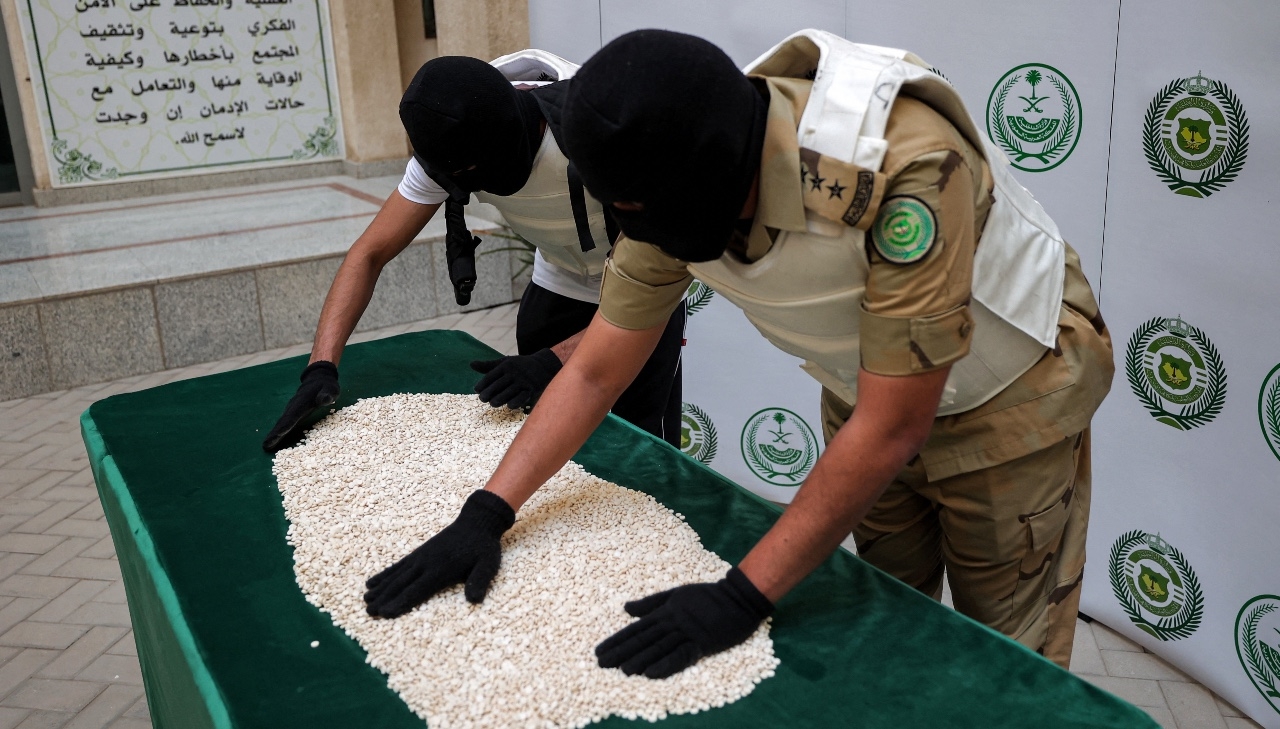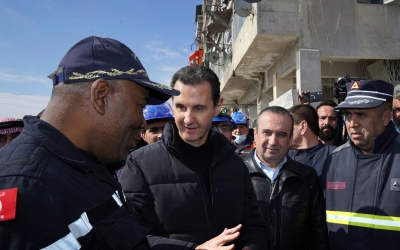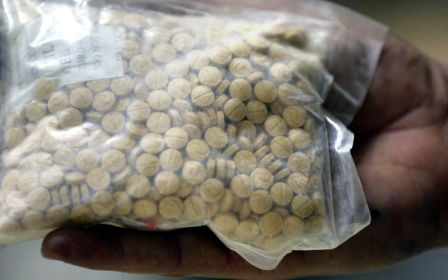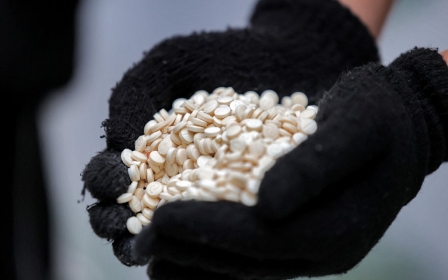US sanctions Bashar al-Assad's cousins, Lebanese 'Captagon King' over drug trade

The US on Tuesday imposed sanctions on two cousins of Syrian President Bashar al-Assad for trafficking Captagon, an addictive amphetamine drug, whose usage has proliferated across the Middle East.
The production and export of Captagon have boomed in Syria amid the fallout of the bloody civil war. Captagon is now Syria's most valuable export and a key source of income for the government in Damascus.
The United States slapped sanctions on two of Bashar al-Assad’s cousins, Samer Kamal al-Assad and Wassem Badi al-Assad, over the drug trade.
Samer Kamal owns a factory in the coastal city of Latakia that produced 84 million Captagon pills in 2020, the US Treasury Department said.
Khalid Qaddour, a Syrian businessman who is a close associate of Maher al-Assad, brother of Syrian President Bashar al-Assad, was also among those designated.
New MEE newsletter: Jerusalem Dispatch
Sign up to get the latest insights and analysis on Israel-Palestine, alongside Turkey Unpacked and other MEE newsletters
Maher heads the notorious fourth division of the Syrian Arab Army. Besides its military role, the division oversees a vast business empire that includes smuggling and Captagon production. Qaddour is responsible for managing revenues generated by the activities, according to the US Treasury Department’s Office of Foreign Assets Control (OFAC).
The sanctions mark the first time the US has directly targeted Syria’s Captagon trade.
'King of Captagon'
Washington's regional allies, particularly Jordan, have lobbied Washington to take a more active role in stopping the drug's proliferation. The 2022 defence spending bill included the Captagon Act, requiring the US government to devise a strategy to disrupt and dismantle Syria’s narcotics networks.
"Syria has become a global leader in the production of highly addictive Captagon, much of which is trafficked through Lebanon," said Andrea Gacki, the senior Treasury official handling sanctions.
"With our allies, we will hold accountable those who support Bashar al-Assad's regime with illicit drug revenue and other financial means that enable the regime's continued repression of the Syrian people," she added.
Others targeted in the sanctions include Nouh Zaitar, a known arms dealer and drug smuggler who is currently wanted by the Lebanese authorities for drug trafficking; and Hassan Dekko, a Lebanese-Syrian national dubbed by local media as “The King of Captagon”.
Under the sanctions, any assets the individuals have on US soil will be frozen and transactions with them labelled a crime.
Some of the sanctions are being implemented under the 2019 Caesar Act, a law named after a Syrian military photographer who smuggled tens of thousands of gruesome photographs out of the country which documented evidence of war crimes.
The act allows the US to slap sanctions on individuals or companies doing business with the Syrian government.
The sanctions come as Syria’s neighbours ramp up efforts to bring Damascus back into the regional fold, concerned about the implications of leaving the country as a pariah state along their borders.
President Assad has been on a whirlwind diplomatic tour in the wake of two deadly earthquakes earlier this year. In February, he visited Oman for his second trip to an Arab state since the start of Syria’s war. He followed up the next month with a trip to the UAE, accompanied by his wife, Asma.
Last week, Reuters reported that Saudi Arabia and Syria had agreed to reopen their embassies after an 11-year freeze in diplomatic relations. Riyadh, along with other Gulf states, supported militants seeking to topple the Syrian leader.
Middle East Eye delivers independent and unrivalled coverage and analysis of the Middle East, North Africa and beyond. To learn more about republishing this content and the associated fees, please fill out this form. More about MEE can be found here.





